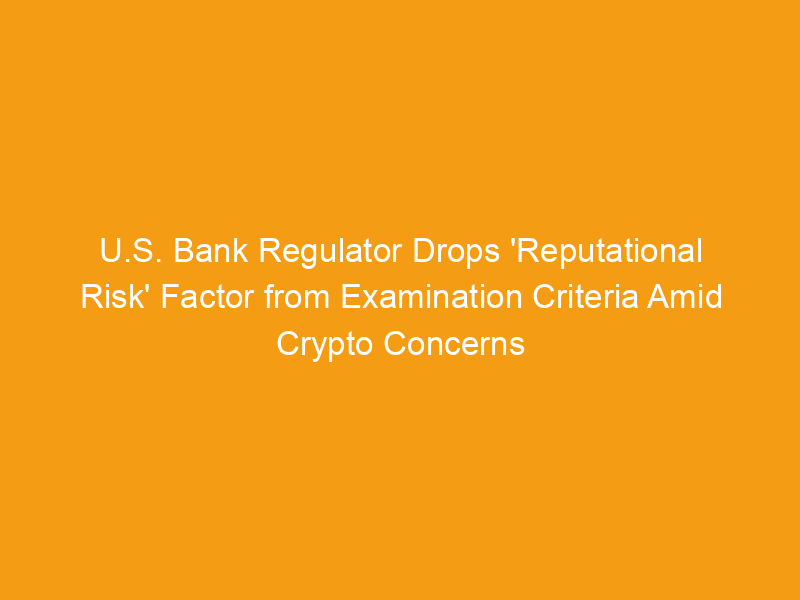Significant Change in Oversight for National Banks
In a notable shift, the Office of the Comptroller of the Currency (OCC) has announced that U.S. national banks will no longer be required to assess how controversial customers could potentially harm their reputations. This decision comes in response to growing criticisms from cryptocurrency companies and industry stakeholders, who argue that such evaluations have led to unfair debanking practices.
Details of the OCC’s Decision
The OCC made this announcement in a statement released on Thursday, highlighting that the removal of the reputational risk factor from its supervision handbook aligns with its commitment to effective risk management. Acting Comptroller of the Currency Rodney Hood emphasized that the examination process should focus on sound risk management practices rather than on public opinion regarding specific activities.
Support from the Federal Reserve
This move echoes recent comments made by Federal Reserve Chair Jerome Powell during a congressional hearing, where he indicated that the Fed would similarly eliminate this category of scrutiny from its internal supervision guidelines. This alignment suggests a broader regulatory trend aimed at fostering a more supportive environment for banks involved in cryptocurrency transactions.
Facilitating Crypto Engagement
The OCC has been actively working to streamline compliance for banks interested in engaging with the cryptocurrency sector. In a recent development, the agency rescinded previous guidance that mandated banks to obtain written pre-approval before offering digital asset services. This change is expected to simplify the process for financial institutions looking to enter the crypto market.
Upcoming Leadership Changes
As the OCC prepares for these regulatory updates, it may soon have a permanent leader. Jonathan Gould, nominated by President Donald Trump, is set to undergo a Senate confirmation hearing next week. The head of the OCC traditionally has the ability to implement changes swiftly and decisively, operating without the need for approval from a commission or board, making this leadership position particularly influential in shaping banking regulations related to cryptocurrency.
Conclusion
The OCC’s recent decision to eliminate the reputational risk factor from its examination criteria is a significant step toward creating a more favorable regulatory landscape for banks involved in the cryptocurrency sector. As both the OCC and the Federal Reserve move towards more accommodating frameworks, the future of crypto banking looks increasingly promising.



